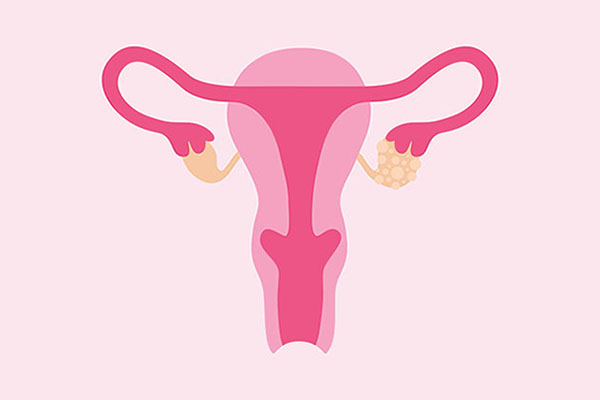 With the increasing popularity of TikTok, many women are turning to the social media platform to discuss health issues—including polycystic ovarian syndrome (PCOS). According to the World Health Organization, about 8-13 percent of women are affected by PCOS—and approximately 70 percent of them remain undiagnosed. Nancy Fan, MD, a Trinity Health Mid-Atlantic obstetrician-gynecologist, discusses PCOS, its symptoms and how it’s diagnosed.
With the increasing popularity of TikTok, many women are turning to the social media platform to discuss health issues—including polycystic ovarian syndrome (PCOS). According to the World Health Organization, about 8-13 percent of women are affected by PCOS—and approximately 70 percent of them remain undiagnosed. Nancy Fan, MD, a Trinity Health Mid-Atlantic obstetrician-gynecologist, discusses PCOS, its symptoms and how it’s diagnosed.
What is PCOS?
“PCOS is a hormonal condition in which the ovaries produce an abnormal amount of male sex hormones,” Dr. Fan says. While the ovaries do use a small amount of these hormones to help the reproductive system function properly, an overproduction can lead to:
- Excessive facial hair
- Acne
- Darkening of the color around the neck
- An elevated insulin resistance factor.
“One of the most common symptoms is having less than four menstrual cycles a year,” Dr. Fan adds.
How is it diagnosed?
“It is important to note that PCOS is commonly misdiagnosed by a borderline testosterone level,” Dr. Fan states. Because of this common misdiagnosis, many providers will check more than just the female hormone levels when testing.
The patient should consult with a reproductive endocrinologist, a physician specially trained to identify and treat conditions that cause infertility. Also called “fertility specialists,” these doctors address symptoms of PCOS by conducting physical exams and checking for symptoms of increased androgen levels (increased body and facial hair, thinning hair on the scalp, and acne). A pelvic ultrasound may also be recommended to examine any small cysts on the ovaries.
“Many providers also recommend checking a person’s insulin resistance factor because insulin resistance is one of the hallmarks of PCOS,” Dr. Fan says. “Therefore, a diagnosis of PCOS can predispose a patient to prediabetes and diabetes.”
Treatment
While there is no cure for PCOS, one of the most common treatments is birth control pills. “The benefit of the pill is to increase the amount of their sex-binding hormones, which will then decrease testosterone and DHEA levels,” Dr. Fan says. “By decreasing these levels, many women have noticed less unwanted hair growth and less acne in addition to regulating their menstrual cycle.”
Learn more about ob/gyn services at Saint Francis Hospital or schedule an appointment.
